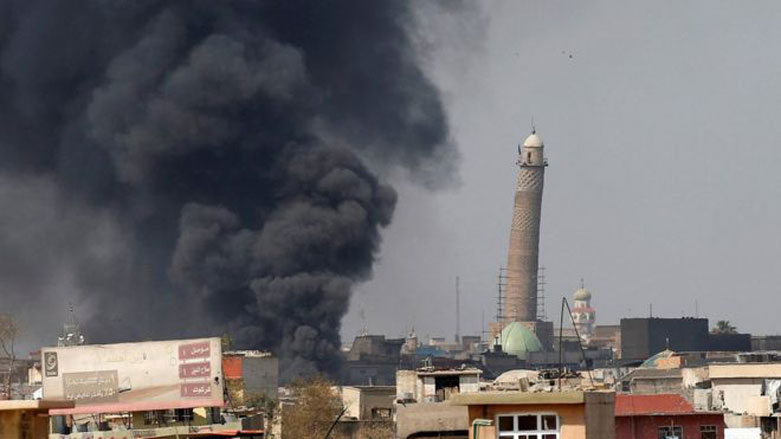IS leader unlikely to be caught for years to come

ERBIL, Kurdistan Region (Kurdistan24) – As both of the Islamic State’s (IS) major strongholds in Iraq and Syria are about to fall, the leader of the insurgent group, who is suspected to be on the run, is likely to outlast his so-called “caliphate.”
Officials and experts said it might take years to capture or kill IS leader Abu Bakr al-Baghdadi, according to Reuters.
On Sunday, Syrian state TV claimed Baghdadi had died in an airstrike in Syria.
However, officials say Baghdadi is steering clear of both Mosul and Raqqa, hiding in the vast desert area between the twin capitals of IS.
“In the end, he will either be killed or captured, he will not be able to remain underground forever,” said Lahur Talabany, the head of Counter-Terrorism at the Kurdistan Regional Government (KRG).
“But this is a few years away still,” he told Reuters.
The US-backed Iraqi forces in Mosul and the state-supported Hashd al-Shaabi, also known as the Popular Mobilization Forces (PMF), have retaken most of the Ninevah Province from the militants.
The PMF have even reached the Syrian border, where they have expressed their commitment not to cross the border without the Iraqi government’s approval.
In Syria, the US-backed, Kurdish-led Syrian Democratic Forces (SDF) launched the offensive to retake Raqqa last week.
Hisham al-Hashimi, an advisor on IS affairs, hinted one of Baghdadi’s main concerns would be the large bounty on his head.
“He would have to ensure those around him do not betray him for the $25 million reward offered by the United States to bring him to justice,” he said.
“With no land to rule openly, he can no longer claim the title caliph,” Hashimi continued.
“He is a man on the run, and the number of his supporters is shrinking as they lose territory,” he added.
Baghdadi was last seen in public in footage of him declaring his caliphate in Mosul’s Grand al-Nuri mosque back in 2014.
Editing by Karzan Sulaivany
